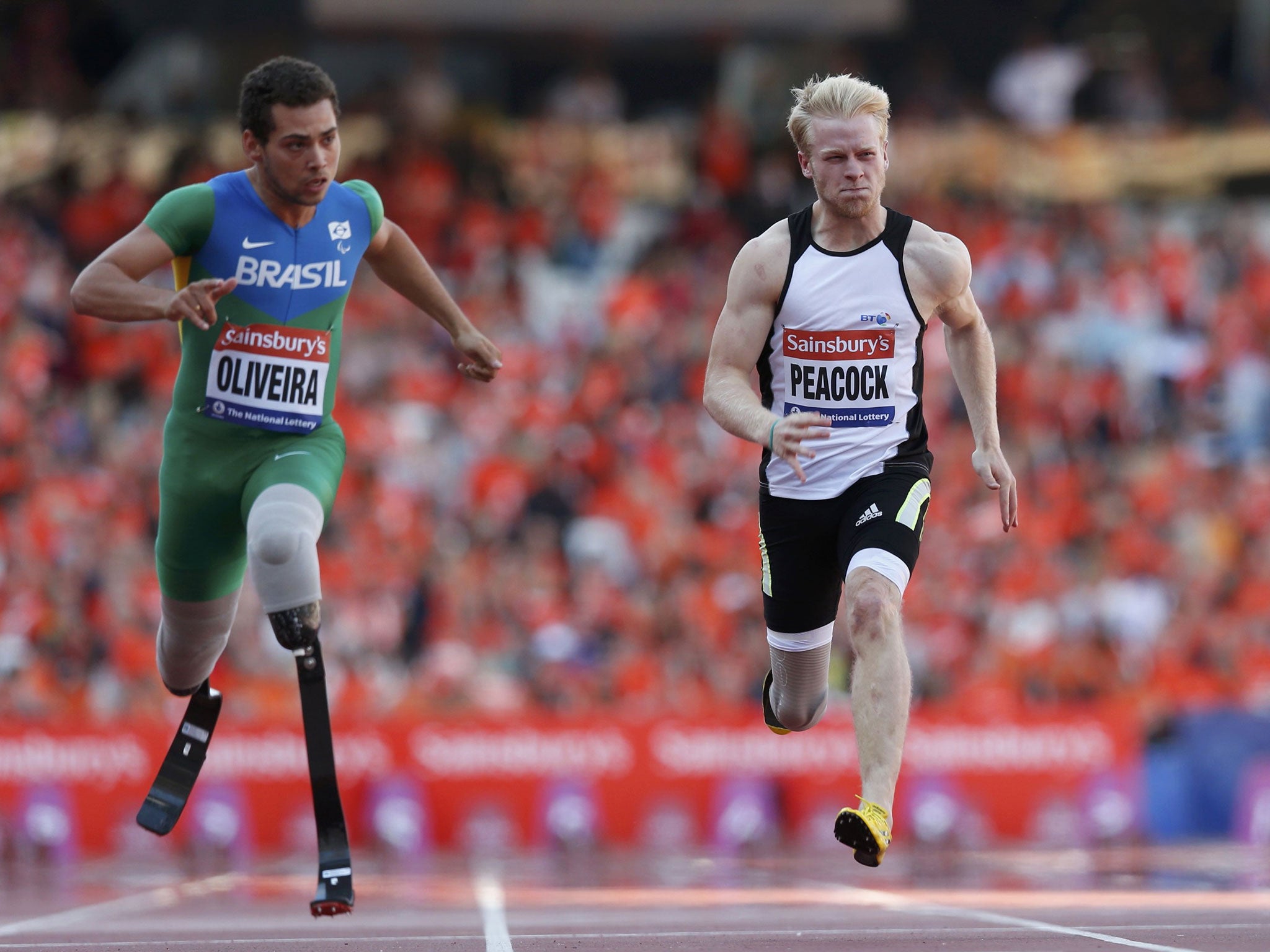Anniversary Games: Alan Oliveira’s new 100m record puts Rio 2016 in spotlight

Your support helps us to tell the story
From reproductive rights to climate change to Big Tech, The Independent is on the ground when the story is developing. Whether it's investigating the financials of Elon Musk's pro-Trump PAC or producing our latest documentary, 'The A Word', which shines a light on the American women fighting for reproductive rights, we know how important it is to parse out the facts from the messaging.
At such a critical moment in US history, we need reporters on the ground. Your donation allows us to keep sending journalists to speak to both sides of the story.
The Independent is trusted by Americans across the entire political spectrum. And unlike many other quality news outlets, we choose not to lock Americans out of our reporting and analysis with paywalls. We believe quality journalism should be available to everyone, paid for by those who can afford it.
Your support makes all the difference.That the last world record on this track went to a Paralympic athlete seemed a fitting finale to the closing act of the first part of the Olympic Stadium’s life. It has played host to the transformation of a movement and on Sunday it hosted a full-house of 65,000 to celebrate what Paralympic sport has become to this country in the space of a year. Outside the Paralympic Games it is the largest ever audience for such an event.
It was also perhaps apt, and certainly timely for the Paralympic movement, that the man who broke that record was a Brazilian, the brilliant Alan Oliveira, because what happens three years from now in Rio will demonstrate whether the level of support will spread beyond these shores.
“You fill out 65,000 seats and it’s apparent Paralympic sport is wanted,” said Jonnie Peacock, gold medal winner last year but third on Sunday. “I think it’s definitely a British thing right now. I don’t think you could go over to America and think it will be the same because it’s just not. But London 2012 was huge for Paralympic sport and the British public just ate it up.”
Oliveira will be the face of Rio 2016 and he brought the house down at the home of London 2012 with a stunning run to win the T43/44 100m – crossing the line in 10.57 seconds and breaking his own T43 world record by 0.2sec. Second across was the brash American Richard Browne in 10.75sec, a new world record in T 44 class. Peacock’s time of 10.84sec, however, was a personal best.
Browne had only taken the record off Peacock at the World Championships in Lyons earlier in the week and the times of the three young men – Browne, who turns 22 in September, is the oldest – are getting quicker and quicker seemingly every time they set foot on the track.
It left a buoyant Browne to make the bold claim that one day one of them will go under 10sec. Peacock shook his head when asked whether he agreed, but Browne believes it can be done and believes the sight of amputees running against able-bodied athletes in the Olympics will become ever more common place.
“Sub-10 is most definitely possible,” said Browne. “If anybody can go sub-10, it’s us. There’s going to be more than one in the able-bodied Olympics by 2016. Regardless of what’s going with Oscar [Pistorius], he broke down so many doors for us and we all owe him gratitude because he showed the world it’s not just crippled people trying to run, we’re athletes; the best athletes in the world. We will break the able-bodied barrier, to the point where we have it all together.
“The IAAF are going to have to be ready. They have no choice but to get ready. They just need to get their rules ready. I talk to a lot of the able-bodied guys and they accept us with open arms. There are no advantages here. If you cut Usain Bolt’s leg off, he’s not going to go 9.5. I guarantee you.”
If Oliveira, Browne or Peacock wanted to run in able-bodied competition they would have to have their blades cleared by the IAAF, the sport’s governing body. Pistorius went through the process but when he was finally given approval that was only for his particular blades – each case would be judged on an individual basis.
Peacock, though, does not believe amputees would be able to compete in the 100m. “He loves to talk,” he said of Browne and grinned. “It’s a big call. In the 100m I don’t think you’re going to see amputees. You put us next to Usain Bolt and we’re going to get absolutely destroyed in the first 20m. In the 200m, possible – Alan’s done great things. And you’ve seen other people do it in the 400m because there’s more time to bring it back.”
Britain’s other blade runner, Richard Whitehead, with his blades painted gold, did manage a repeat of his victory last year, storming through the field to win the T42 200m. “Coming through the field was a recollection of London 2012,” he said. “Today was about legacy, sustaining Paralympic sport and inspiring people.”
It was a point of view echoed by another British victor, Dan Greaves, who took the F44 discus. “It was great to be back in the stadium,” said Greaves. “The amount of support for Paralympic sport is unreal and it shows that they are understanding that it is elite sport. Hopefully, we are pushing the movement forward and we can have this every year.”
Join our commenting forum
Join thought-provoking conversations, follow other Independent readers and see their replies
Comments